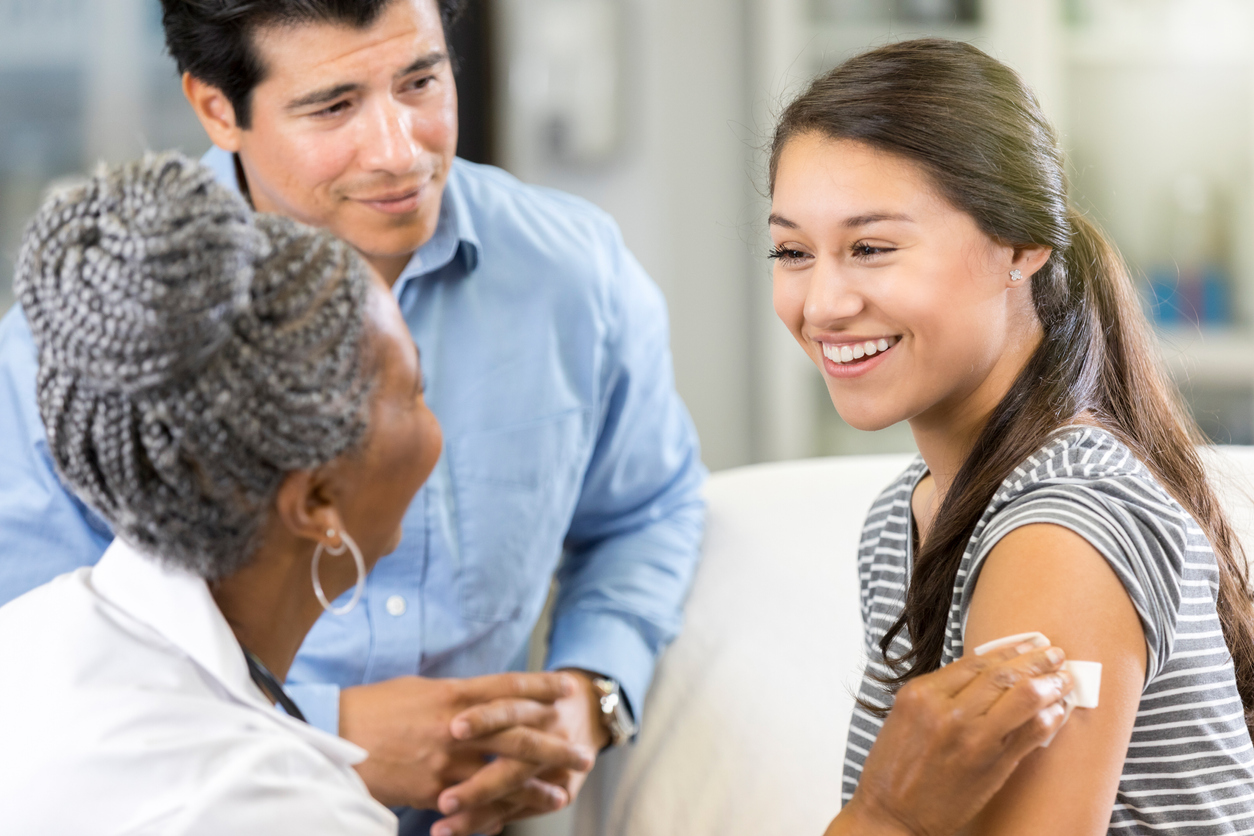
What you should know about Human Papillomavirus (HPV)
What is human papillomavirus (HPV)?
HPV is a small DNA virus. Like all viruses, HPV causes infection by entering cells. Once inside, HPV takes control of the cell’s internal machinery and uses it to make copies of itself. These copies then infect other nearby cells.
HPV causes significant morbidity and mortality both in men and women. It is the most common sexually transmitted infection (STI) in the United States, with the highest prevalence in women aged 20-25 years. Of the more than 150 HPV genotypes, about 40 types infect the genital area of men and women and are spread by skin-to-skin contact during vaginal, anal and oral sex. Most sexually active women and men will be infected at some point in their lives and some may be repeatedly infected.
HPV is associated with anogenital cancer (including cervical, vulvar, vaginal, penile and anal) and oropharyngeal cancers which affect the mouth and throat. HPV is also associated with genital warts. About 90% of cases of genital warts are caused by HPV genotypes 6 and 11. Genital warts are growths that can appear on the outside or inside of the vagina or on the penis and can spread to nearby skin. Genital warts also can grow around the anus, on the vulva, or on the cervix. Genital warts are not cancer and do not turn into cancer. Warts can be removed with medication or surgery.
At least 13 HPV genotypes have been shown to cause cervical cancer. Most cases are caused by HPV genotypes 16 and 18. Despite the success of cervical cancer screening through pap smear test in the US, each year cervical cancer is diagnosed in more than 13,000 women and nearly 4,000 die from the disease. Most of these cases of cervical cancer occur in women who have had inadequate screening. Furthermore, adequate screening in women has led to increased partner evaluation in those with an HPV diagnosis. HPV associated cancers in men, which include anal, penile or throat cancer, are actually increasing in the US. Currently, there is no approved HPV test for men. It is important that sex partners discuss their sexual health and risk for all STIs, with each other.
What are the signs and symptoms of HPV infection?
Genital HPV infection often has no signs or symptoms. The infected person usually is not aware that he or she has been infected and can unknowingly pass the infection to others.
On the other hand, symptoms of cervical cancer tend to appear only after the cancer has reached an advanced stage and may include:
- irregular, intermenstrual or abnormal vaginal bleeding after sexual intercourse
- back, leg or pelvic pain
- fatigue, weight loss or loss of appetite
- vaginal discomfort or odorous discharge
Does being infected with HPV mean a person will get genital warts or cancer?
No. In most people, the immune system fights most HPV infections and clears them from the body within 1-2 years. Infections that are not cleared from the body are called persistent infections. A persistent infection can cause cells to become abnormal and lead to a condition called precancer. It usually takes years for this to happen. Risk factors for HPV persistence and development of cervical cancer include early first sexual intercourse, multiple sexual partners, tobacco use, and immune suppression (for example, HIV-infected individuals are at higher risk of HPV infection). Cervical cancer screening through pap smear test can detect signs of abnormal cell changes of the cervix and allows for early treatment so they do not become cancer. It typically takes 15 to 20 years for cervical cancer to develop in women with normal immune systems.
What is the best way to protect against HPV infection?
A vaccine is available that can prevent infection with HPV. HPV vaccine significantly reduces the incidence of anogenital cancer and genital warts in women and men by up to 99%. The vaccination works best when it is done before a person is sexually active and exposed to HPV, but it still can reduce the risk of getting HPV if given after a person has become sexually active. It is recommended that routine HPV vaccination be given to girls and boys at the target age of 11 or 12 years through age 26 years.
Even if you get the HPV vaccine, it is still important to take other steps to protect yourself against HPV and other STIs:
- Limit your number of sexual partners. The more partners you have over the course of your life, the greater your risk of infection. Abstinence is the only way to prevent transmission.
- Use a male or female condom to reduce your risk of infections when you have vaginal, anal or oral sex. But be aware that condoms cover only a small percentage of skin and do not completely protect against HPV infection. HPV can be passed from person to person by touching infected areas not covered by a condom.
Does the HPV vaccine cause any side effects?
There have been no reports of severe side effects or bad reactions to the vaccine. The most common side effect of the HPV vaccine is soreness and redness where the shot is given.
– By Sonia Jackson, MD, Obstetrics and Gynecology Physician
Reference: “Human Papillomavirus (HPV).” ACO
Contact Premier Medical Group today, and schedule an appointment to speak to a physician about HPV vaccination.
